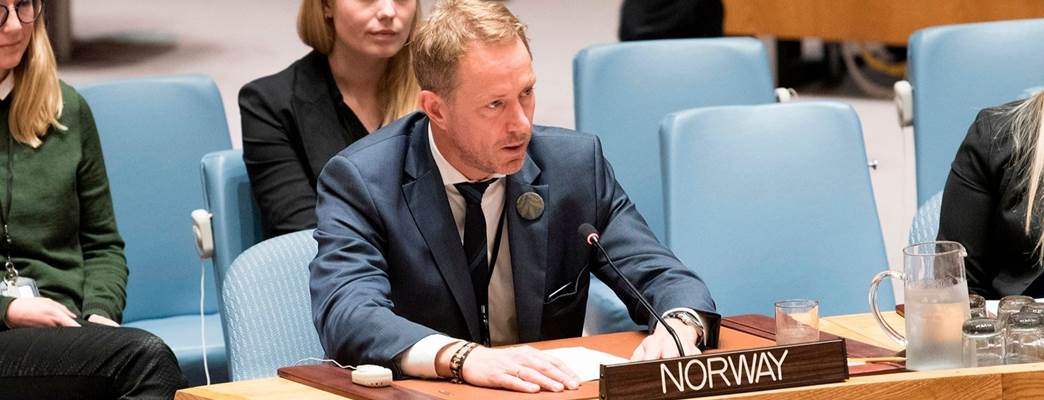President, I am presenting this statement on behalf of Denmark, Finland, Iceland, Sweden and Norway. First, I would like to thank Peru for initiating this very timely debate.
Every single day, sexual violence is used as a weapon or a tactic of war. Domestic violence increases as tensions grow. The chaos of conflict prepares the ground for further unreported, unprosecuted abuse.
Women are always exposed in conflict. But violent extremists often target women specifically, as part of their strategy. Women’s rights and security suffer. A significant part of the extremist violence is in fact sexual violence.
Sexual violence is often seen as an inevitable, if regrettable, consequence of conflict. This attitude encourages impunity for perpetrators and silences survivors.
The challenges are immense: insufficient protection mechanisms, inadequate rule of law and weak judicial systems, poor services for survivors, stigmatization of victims and witnesses of gender-based violence, structural discrimination, economic and social inequalities, just to mention a few.
Conflict-related sexual violence is a violation of both international human rights law and international humanitarian law. It can also be a war crime, a crime against humanity or an act of genocide.
The International Criminal Court plays a central role in the fight against impunity, but states have the primary duty to prevent and investigate cases, and to prosecute the perpetrators.
Strengthening the capacity of national institutions to prevent, investigate and respond to sexual-and gender based violence during peacetime and conflict, is therefore critical for accountability.
President, Sexual violence is eroding the societies we are striving to stabilise and rebuild. It is destroying the future as well as the present, for many more than the women and girls, men and boys directly affected.
Preventing and responding to sexual-and gender based violence is a priority for the Nordic countries.
In our mediation efforts, we work to ensure that victims are heard, that amnesty for sexual crimes is not accepted.
We strive to increase the number of women deployed to international operations, because a diverse team delivers better on the ground. We train all our personnel to ensure that those who are entrusted with people’s lives can in fact be trusted.
We have contributed several specialized SGBV police teams to UNPOL operations.
Together with the UN, we are developing a whole-of-mission handbook for UN operations on how to prevent and respond to conflict-related sexual violence. We cooperate with the AU and Special Envoy Diop. We support UNFPA in their work to provide life-saving services to survivors, and UN Women’s and OCHA’s efforts to ensure a gendered humanitarian response.
We work with SRSG Patten, the Team of Experts, UN Action and Justice Rapid Response. Justice Rapid Response and UN Women are doing valuable work for example in training experts in investigating SGBV crimes. We support GenCap, another mechanism that deploys gender experts without delay, to assist the UN in its emergency response.
Our civil society partners run shelters, provide psychosocial and legal support, and engage in livelihoods programmes.
Academic partners provide knowledge that informs our policy decisions.
President, Let us underscore the pivotal importance of gender equality and women’s empowerment, as highlighted in the concept note to this debate.
Without full and effective participation of women at all levels of decision-making, we will not be able to prevent and respond to conflict-related sexual violence efficiently.
We need a broad, consistent and coordinated response to a problem of this magnitude.
The Call to Action, the National Focal Points for Women, Peace and Security and the emerging alliance of Networks of Women Mediators are important steps in the right direction.
President, Today’s discussion is not about victims. It is about survivors who are entitled to protection and justice. They must be enabled to take part in rebuilding their societies. Only then will peace be sustainable.
